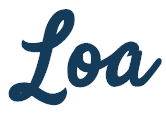I learned that my mind is ultimately the only tool that matters. Learning to compensate for my physical limitations only helped to strengthen my mind.
For most people, college is a 4-year transitional period of learning to prepare for a career. I have spent as much time in college as I have in elementary school. My experience at university has been somewhat different for a variety of reasons.
During my senior year of high school, I sustained a spinal cord injury that left me ventilator-dependent. Thus, I started college primarily in an effort to maintain some sort of normalcy and sense of purpose, rather than to prepare for a career. Not only was I adjusting to living life with a ventilator and all of the medical equipment required to leave the house, but I also had to adjust to academia without the use of my hands.
In 2009, I graduated with a BA in History, with a side interest in literature. I quickly realized that academic pursuits were fairly easy to undertake given my change in circumstances. I just had to figure out new ways of doing things. Despite the loss of hand function, I found a variety of different ways to manage with the help of other people and dictation software technology. I learned that my mind is ultimately the only tool that matters. Learning to compensate for my physical limitations only helped to strengthen my mind.
With this new understanding, I decided to return to my first love, the sciences, rather than continue graduate studies in the humanities. I enrolled in a program to pursue a BS in physiology. After the accident, I had been uncertain how I could manage lab work without the use of my hands, so I focused my studies on the humanities. However, that experience made me realize that I could adapt coursework in order to carry it out with the tools I still possess. My humanities degree also exposed me to the history of science, which was a great academic foundation to pursuing a science degree.
I decided to pursue a degree in the field of biology in order to find some way of contributing to medicine, possibly through research. My original goal in high school was medical school. Thus, shortly prior to finishing my BS, it was my good fortune to discover an unexpected way of fulfilling my dreams by becoming a part of the Ventec community. I always wanted to practice medicine because I wanted to do something that would help make people’s lives better. Now I feel I am fulfilling that goal in an even more meaningful way.
Entering the last quarter of college brought about self-retrospection over my long academic journey and how my various studies have brought me to a place where I can be successful in what I am pursuing today. Even though at different times I was working towards different goals, the skills I acquired and the lessons I learned have prepared me for where I find myself today. I also found myself considering how much has changed with regards to my ventilator and how that has impacted my studies over the years. I only started to use VOCSN last year and it has truly opened up my world. It makes my active lifestyle, particularly the challenges of academia, much easier to maintain. Before VOCSN, I would often have to leave class in order to cough and clear secretions, consequently missing class content. Now, VOCSN Touch Button Cough makes it easy for me to discreetly cough without disrupting other students, or missing out on lecture. I wonder how things would have been different if, during those early years when I was struggling to figure out how to adapt to engaging in life with a ventilator, I had VOCSN and all of the convenience it brings.
Even though things are much easier now than when I was first injured, the difficulty of having to figure out how to overcome the challenges of my injury has been a critical part of my academic journey. I am passionate about education and strongly believe that anyone with physical challenges and/or are on a ventilator can pursue it. I feel that my multiple academic endeavors will help me to be successful in not only my current pursuits, but in any other future goals I may pursue.

The views expressed by Loa are not necessarily the view of the Ventec Life Systems, its members or the clinical board. These blog posts are the personal experiences of Loa. The blog posts are not intended to provide clinical advice or training related to VOCSN. Always consult a physician or trained clinician prior to using VOCSN. Please refer to the VOCSN Clinical and Technical Manual for detailed instructions, including indications and contraindications for use. VOCSN is available by prescription only.